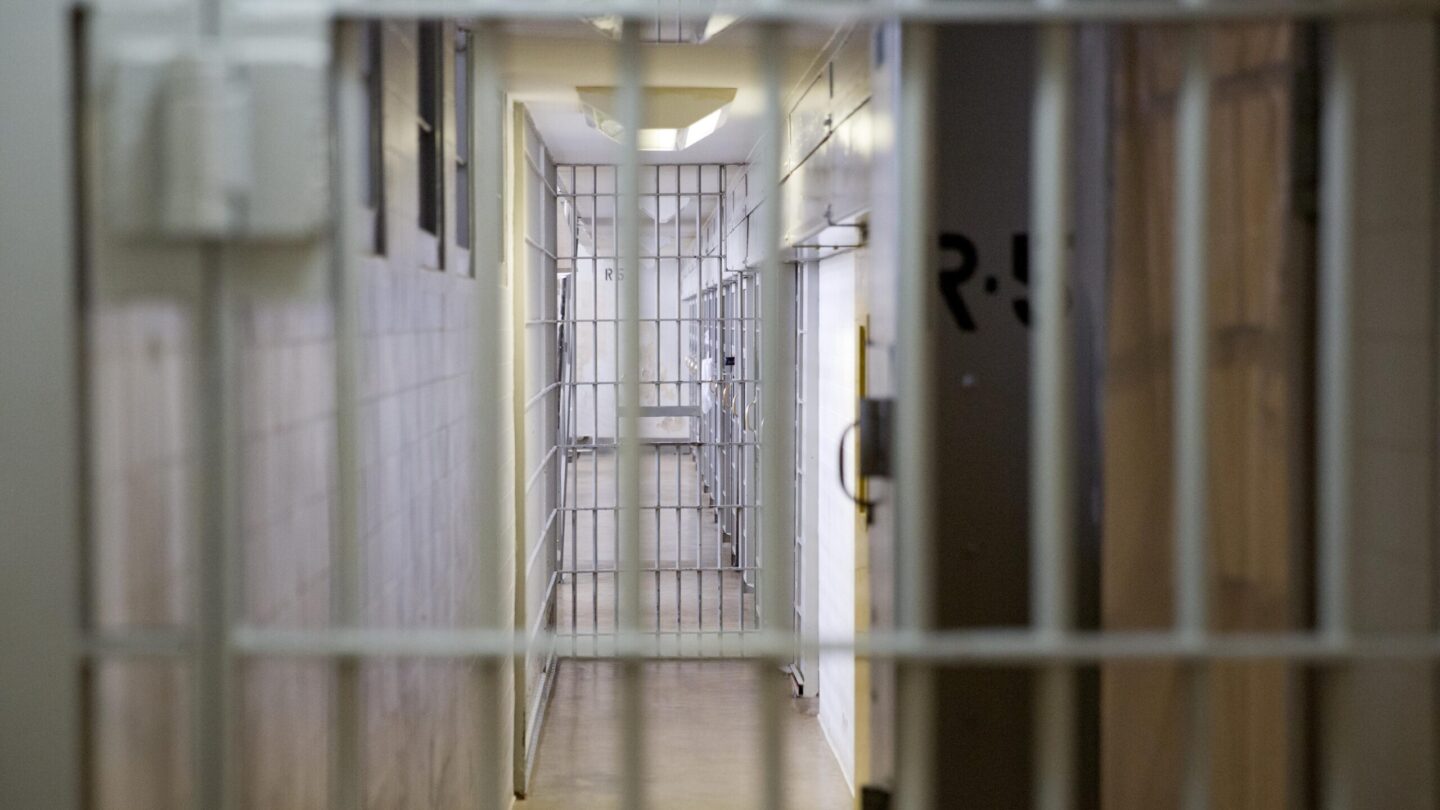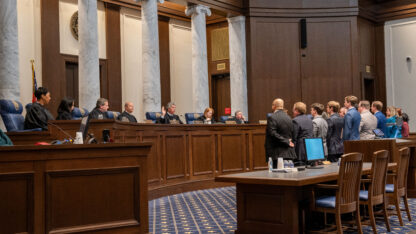Transgender officer at Georgia prison can continue suit over 'hostile work environment,' judges rule

A transgender corrections officer is moving forward with a lawsuit against the Georgia Department of Corrections.
David Goldman / Associated Press
A federal appeals court in Atlanta is allowing a transgender corrections officer to move forward with a lawsuit against the Georgia Department of Corrections over a hostile work environment.
In November, a three-judge panel with the 11th U.S. Circuit Court of Appeals heard oral arguments from Tyler Copeland’s attorneys, who said that he was mocked and deliberately misgendered while working as a sergeant at Rogers State Prison.
The men’s medium-security prison is in southeast Georgia. It’s recently made headlines due to an outbreak of violence.
Copeland alleges that from the time that he came out as transgender at work until he filed the lawsuit, his peers, supervisors and subordinates began pushing him around and calling him names like “ma’am” and “baby girl.”
He filed several complaints with human resources, but the harassment allegedly continued.
“Dangerously, given his position and need to command respect from inmates, [his co-workers] disobeyed and undermined him,” said Circuit Judge Jill Pryor in a 32-page written opinion.
Copeland also alleges that he was reassigned to the night shift — a less desirable posting — and his supervisors began refusing to let him miss work to attend longstanding doctor’s appointments.
The lawsuit brings three claims under Title VII of the Civil Rights Act of 1964.
A lower court previously sided with Copeland’s employer due to a lack of evidence that the harassment was “sufficiently severe or pervasive.”
However, the federal appeals court overturned that decision, meaning Copeland can proceed with his legal battle.
The ruling is based on whether “a reasonable jury” could conclude that there was enough evidence to support Copeland’s allegations.
“We are more than satisfied that it could,” Pryor said.
The Georgia Department of Corrections said it was not responsible for the hostile work environment because it promptly addressed the harassment.








